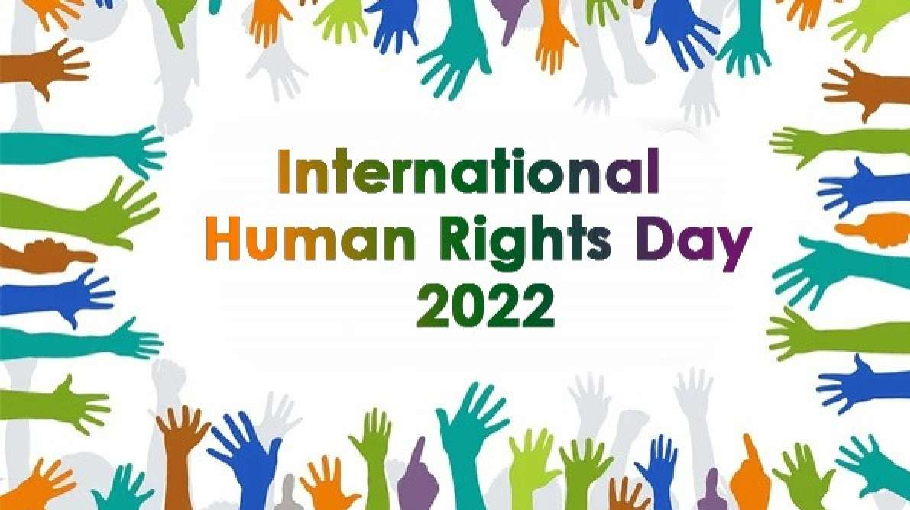Human Rights Day 2022: Time to strengthen global solidarity

10th December marks the 74th anniversary of the Universal Declaration of Human Rights (UDHR). All the UN members adopted the declaration on 10th December 1948. Since then, every year on 10th December, the world celebrates the day as Human Rights Day. This year the theme of the day is 'Dignity, Freedom, and Justice for All'. The day is also important for Bangladesh as it is a signatory to the declaration and is committed to human rights.
The post-pandemic scenario, global conflict, and economic downturn further signify this year’s celebration. Over the past two decades, liberal-democratic values have been declining worldwide. Majoritarian politics and populist stances by political parties are fuelling various anti-human rights forces worldwide. In Europe and North America, systematic racism, fascism, xenophobia, hate crime, anti-immigrant policies, anti-refugee sentiments, and supremacist worldviews are deteriorating the human rights situation for minorities.
The decay of liberal-democratic values also fuels authoritarianism and security forces' abuse. Apart from the political order, the aggressive marketing policies by corporates, monopolistic market domination by large capitals, and ferocious data extraction are also affecting the idea of consumer protection all over the world. The monopolistic dominance of technologically advanced countries over the internet is also forcing us to surrender at their will.
However, the scenario became more complicated during the pandemic. The pandemic further bolstered these processes. The Ukraine crisis erupted in February, and the western sanctions of Russia followed later, further complicating the situation as it ignited an energy and food crisis worldwide. As a result, skyrocketing inflation, food shortage, energy disruption, fluctuating forex reserve, and a commodity shock have prevailed globally. The greed of the energy producers and monopolistic decision-making of the OPEC countries also contributed to these issues. Together, we are pushing mother earth toward a man-made catastrophe.
Apart from the praxis, the human rights scenario is also deteriorating in practice. War, conflicts, internal rift, political violence, instability, power abuse, and harsher security methods violate human rights globally. All these violations are directly affecting our global human rights situation adversely. The long-going Syrian war, Yemen, Ukraine, and many other crises directly violate human rights. Many of these conflicts are foreign-induced and are directly tied to great power rivalry. The conflicts are being prolonged because of these great powers' interests.
The great power rivalry also brings us to the latest, perhaps the first-ever debate on weaponizing human rights. For the past few years, human rights have become a tool for advancing interests. The ascension of Biden and his centering foreign policy around democracy and human rights further brought the debate to light. According to critical scholar Radhika Desai, the US is now weaponizing western values and norms to counter the growing presence of its rival, China.
The US has been imposing sanctions against alleged human rights violators worldwide for the past two years. But it seems there is a pick and choose. While it sanctions the countries it perceives as 'China inclined', it is turning a blind eye to its allies. The world hardly saw any effective sanctions against western allies and their heinous deeds, such as Israel.
The sanctions further deteriorate the human rights scenario worldwide, and imposing sanctions limits the scope for reconciliation and further isolates cooperation. The Ukraine crisis and subsequent sanction are now affecting food and energy security around the globe. It has also taken a toll on the existing financial structure, which would ultimately result in growing poverty.
The democratic health and Human Rights situation is also not that praiseworthy in the Global South. Weak institutions, corruption, despotism, climate change, bottom-heavy industries, and political violence are affecting the lives of billions.
However, amid many negatives, there are efforts to improve the situation. The global South’s vocal participation in the 'Universality' debate regarding many Human Rights and western values is worth mentioning. After 74 years of the UDHR, the post-colonial states are resisting the globalization of the 'one-form' notion of human rights, while these states are advocating for diversity and cultural appropriateness when judging. For instance, LGBTQ rights are not appropriate in the Middle East's Islamic culture, while it fits for Western society. Hence, the universality only fits in some aspects of the existing understanding of human rights.
The scholarly discussions have also acknowledged it. Jack Donnelly's writings have also acknowledged that in many aspects, human rights are not universal. The idea should be relative across time, space, and culture.
As Bangladesh is celebrating the day, it is worth discussing Bangladesh's human rights situation. Bangladesh is not exclusive amid the global democratic backsliding and deteriorating human rights. The country has a long way to go. Political violence, weak institutions, climate change, and poor labor condition are some of the traditional challenges to the country's human rights situation. Moreover, the ongoing inflation, growing poverty due to the pandemic are also deteriorating the country's human rights situation.
However, the country has also achieved significant success in upholding Human Rights. The country has achieved remarkable success in ensuring women's rights, child rights, literacy, and food security. One noteworthy success for the country is providing gender rights to transgender communities, popularly known as Hijras.
The country has given them the status of the third gender and provided them with their rightful power of voting. Bangladesh also has a vocal role in global climate change cooperation and is home to 1.2 million Rohingya refugees.
We must not forget that upholding human rights is a continuous process, and it requires time and global cooperation. On this auspicious day, the emphasis should be on strengthening global solidarity on human Rights. The world should denounce bigotry, bloc politics, polarization, and rivalry, accept diversity and mutual respect, and reaffirm the global commitment towards human rights. Only then will the world be able to address growing concerns and uphold the global human rights situation.
Aziz Patwary is a British-Bangladeshi and a former World Bank Employee




